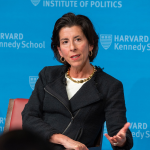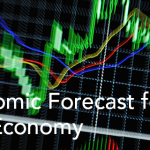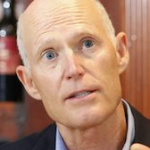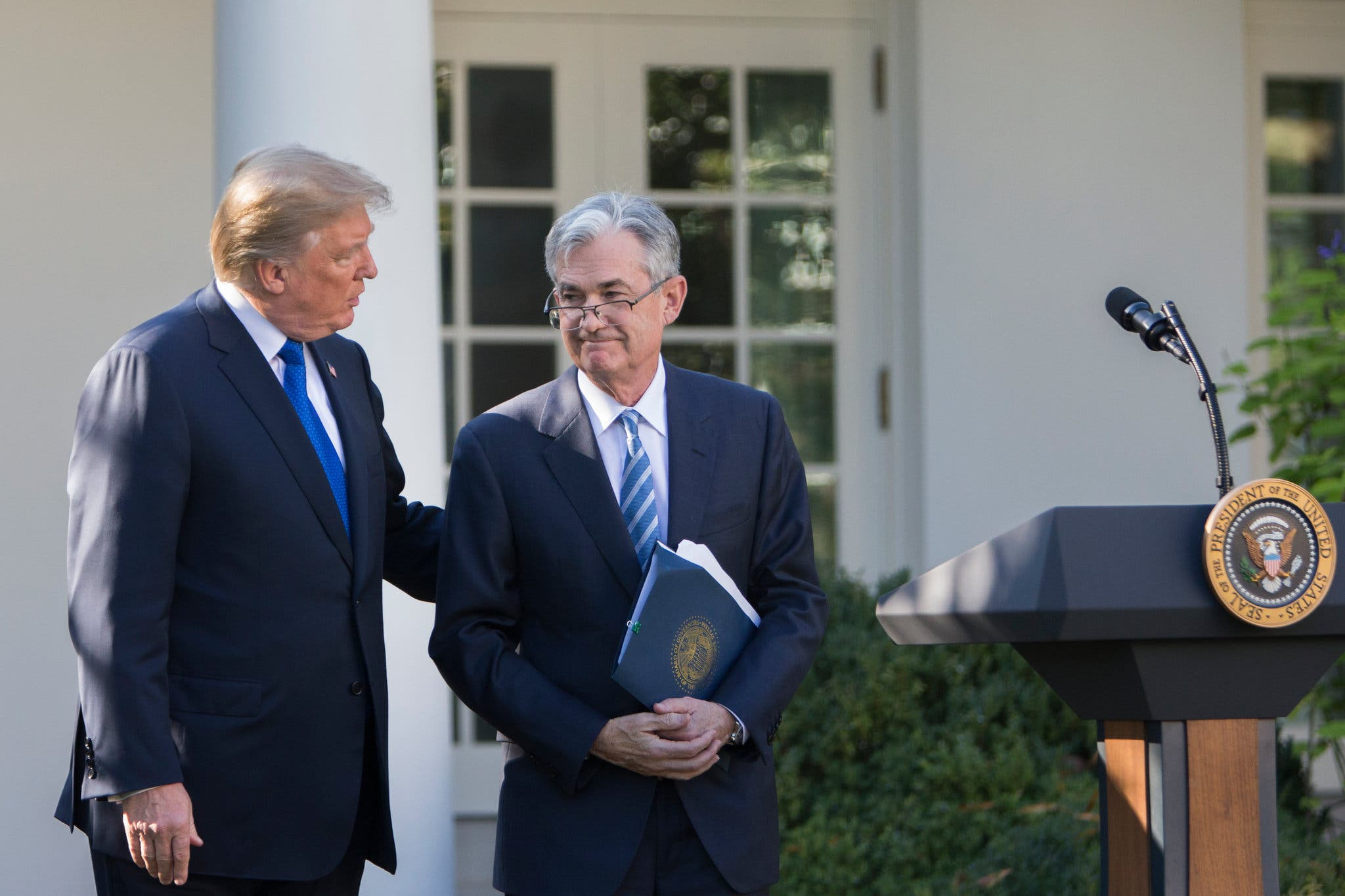Trump Fed Chairman Jerome Powell has been at the center of a contentious relationship between the former president and the Federal Reserve. Since his nomination by Trump in 2017, Powell has navigated the turbulent waters of monetary policy while grappling with Trump’s discontent over interest rates and global tariffs. Trump’s policies have raised concerns about inflation and growth, leading to heated debates about the future direction of America’s economic landscape. As Trump has hinted at possibly replacing Powell before his term ends, the market’s response to such instability reflects the delicate balance of power within the Federal Reserve. This scenario underscores the growing tension between presidential influence on monetary policy and the Federal Reserve’s independence.
In examining the complexities of the Federal Reserve, one must consider the pivotal role played by Jerome Powell as chair. The dynamics within this crucial central banking institution highlight the interplay between governmental policies and economic stability. As interest rates and monetary strategies are debated, alternative viewpoints around Trump’s economic directives create a backdrop for ongoing discussions about fiscal governance. Powell’s stewardship during a period of uncertain financial trajectories illustrates the essential functions of the Fed in maintaining market confidence. The implications of potential leadership changes could significantly affect public trust in economic management and long-term monetary strategies.
The Role of Federal Reserve Chair in Economic Stability
The Federal Reserve Chair, currently held by Jerome Powell, plays a crucial role in shaping U.S. monetary policy and ensuring overall economic stability. The chair’s decisions on interest rates directly affect inflation rates, unemployment levels, and the general health of the economy. A significant aspect of their influence lies in maintaining the credibility of the Fed, which is essential for managing inflation expectations. If the market believes that the Fed is compromised or lacks independence, this can lead to higher long-term interest rates, which could stifle economic growth and investment.
In light of President Trump’s tumultuous relationship with Powell, there are growing concerns about potential risks to this independence. Trump has publicly criticized Powell for not being more aggressive in his monetary policy approach, particularly regarding interest rate cuts aimed at stimulating the economy. Such criticisms underscore the delicate balance the Fed must strike between political influence and economic imperatives. As economic indicators fluctuate, maintaining the Fed’s legitimacy and autonomy becomes paramount, not just for the current administration, but for the historical integrity of the institution itself.
Understanding Trump’s Threats: Power Dynamics with the Fed Chairman
During President Trump’s tenure, the dynamics between the presidency and the Federal Reserve have become increasingly contentious, especially regarding the authority of the Fed Chairman. Trump has suggested the possibility of ousting Powell, a move that could undermine the perceptions of Fed autonomy and provoke fears about future monetary policy directions. Critics argue that such actions could trigger significant market volatility, as the financial community typically reacts unfavorably to uncertainties regarding monetary policy guidelines. The foundational principle of an independent central bank is imperative for economic health, and Trump’s threats raise essential questions about the limits of presidential power within this context.
Legal experts suggest that while the Federal Reserve Act does allow for the removal of governors for cause, the question remains whether this extends to the chair. This ambiguity could lead to legal battles that would further destabilize markets already on edge. Investors are left wondering how aggressively the Trump administration would pursue policy changes through potential leadership shakeups within the Fed, especially as his administration’s fiscal policies might clash with Powell’s typically cautious approach to interest rate adjustments and inflation control. Such potential shifts could either deepen or alleviate market anxieties depending on the outcomes.
Market Reactions to Speculation of Powell’s Removal
The prospect of Federal Reserve Chairman Jerome Powell’s removal invokes palpable anxiety in financial markets. Historically, the Fed’s independence from political pressures has been critical in establishing its credibility as an inflation-fighting institution. If Powell were to be displaced, particularly under politically motivated pretenses, it could diminish trust in the central bank’s ability to manage inflation effectively. Analysts predict that markets could react sharply, with longer-term interest rates spiking as investors seek a risk premium against perceived instability.
Furthermore, such an action could signify a shift towards a more aggressive, perhaps populist monetary policy, which markets might interpret as economically irresponsible. Investors typically favor predictability when dealing with interest rates and monetary policy. Thus, any destabilization of the Federal Reserve’s leadership would likely lead investors to re-evaluate their portfolios and increase risk assessments across various sectors. A strong reaction to potential changes in leadership at the Fed illustrates just how intertwined political decisions and market confidence are—something that policymakers must tread carefully around.
Evaluating Trump’s Economic Strategy and the Federal Reserve’s Response
Trump’s economic strategy, characterized by aggressive tariff implementation and significant tax cuts, has generated mixed reviews regarding its long-term sustainability. The administration has often criticized the Federal Reserve for not cutting interest rates quickly enough to spur economic growth. If Trump were to act on his threats to remove Powell, it would express a deeper discontent with the Fed’s cautious approach to economic policy that prioritizes long-term stability over short-term gains. This tension between the White House and the Fed complicates the already challenging task of managing economic growth while keeping inflation in check.
In this scenario, the Federal Reserve’s response plays a critical role. Under Powell’s leadership, the Fed has emphasized transparency and independence in decision-making, which are essential to maintaining public trust. However, if it appears that the Fed’s decisions are being influenced by political pressure, the bank’s credibility could suffer, resulting in a self-fulfilling prophecy of rising inflation and market instability. Therefore, the Fed’s ability to articulate a clear, data-driven monetary policy will be essential in countering any skepticism arising from Trump’s regulatory environment.
The Supreme Court’s Influence on Fed Independence
The potential for the Supreme Court to weigh in on the power dynamics between the presidency and independent agencies like the Federal Reserve is another layer of complexity in the ongoing debate about Jerome Powell’s future. Recent Supreme Court rulings have questioned the limits of executive power regarding independent regulatory agencies, casting uncertainty over long-standing interpretations of the Federal Reserve Act. Such judicial deliberations could significantly impact how future administrations approach their relationships with the Fed, especially in light of Trump’s calls for policy intervention.
Should the Supreme Court assert more expansive powers for the presidency over the Fed, it could enable future presidents to remove the chair more freely—transforming the landscape of monetary policy in unprecedented ways. This potential evolution of the law could threaten the long-standing consensus regarding the Fed’s independence, which in turn could lead to volatility in financial markets. As seen throughout history, investor sentiment often hinges not just on current policies, but on the perceived legitimacy and future potential for changes in those policies, emphasizing the importance of safeguarding the Fed’s operational independence.
Implications of Removal for Fiscal Policy and Interest Rates
If President Trump were to follow through on his threats to remove Federal Reserve Chair Jerome Powell, the direct implications for fiscal policy could be substantial. The Fed has traditionally operated with the aim of maintaining price stability through controlled interest rates. Any abrupt change in leadership could shift the focus toward a more accommodative monetary policy aligned with short-term political objectives rather than sound economic fundamentals, potentially fueling inflation and eroding the purchasing power of consumers. A shift away from Powell’s careful, data-driven policy approach could create significant market dislocation.
Such dynamics raise critical questions about the future of U.S. fiscal policy and interest rates under a new chair. Would the new appointee cater to political pressures or maintain the stature of the Fed’s historical role as an independent arbiter of monetary conditions? The market’s reaction to any perceived changes in the political alignment of the Fed could amplify economic cycles, leading to more pronounced peaks and troughs that impact everything from household spending to business investment decisions. This underscores how integral the Fed’s independence is to stabilize U.S. economic performance amidst politically charged environments.
The Future of the Federal Reserve under New Leadership
As speculation continues to swirl around the potential for a new Fed chair under President Trump, the implications for the institution’s future are profound. Whatever the outcome, the next appointee will face immense challenges: a volatile economic environment, rising inflation, and a global context that increasingly demands adept and agile monetary policy responses. Should Powell be replaced, the successor will need to reassure markets about the Fed’s commitment to its dual mandate: maximizing employment while ensuring price stability amidst political pressures that may skew those priorities.
Furthermore, the choice of a successor will signal to markets the administration’s intentions regarding monetary policy. A chair who seeks to bolster the Fed’s existing framework is likely to assuage market fears about its independence, while a more politically aligned appointee could prompt a reevaluation of investor strategies on interest rates and inflation expectations. The key takeaway for investors will be to monitor these appointments closely, as the implications could define economic policies for years to come and shape the trajectory of the U.S. economy within an increasingly complex global financial landscape.
The Legal Framework Defining Fed Chair Terminations
The legal basis for removing the Federal Reserve Chair remains a critical question amidst the ongoing discussions surrounding Jerome Powell’s position. The Federal Reserve Act outlines that governors can be removed for cause, but its interpretation concerning the chair remains ambiguous. This complexity introduces a variety of perspectives on the extent of presidential authority to intervene in Fed leadership, which has vast implications not only for Powell but also for the institutional integrity of the Federal Reserve itself. The potential legal challenges that might arise from any attempt to oust Powell could unsettle markets further, highlighting the interconnectedness of law, governance, and economic stability.
As debates about executive power and independent agencies evolve, outcomes may hinge on interpretations by the Supreme Court regarding the reach of administrative authority. Historical precedents will undoubtedly play a crucial role; hence the legal ramifications of Trump’s threats could reshape not just the Federal Reserve’s governance structure but potentially redefine the relationship between fiscal policy and political pressure. As the economic landscape continuously shifts, the role of law in maintaining the balance between independence and executive power will remain at the forefront of this critical dialogue.
Conclusion: Balancing Power between the Presidency and the Fed
Navigating the delicate balance of power between the presidency and the Federal Reserve has far-reaching consequences for the U.S. economy. The ongoing debate about President Trump’s threats to remove Jerome Powell underscores fundamental tensions in fiscal policy, central bank independence, and market reactions. As various stakeholders contemplate potential outcomes, it is imperative to consider how these changing dynamics will affect monetary policy, interest rates, and overall economic growth.
Going forward, ensuring that the Federal Reserve retains its independence is crucial for maintaining investor confidence and economic stability. Policymakers and market participants alike must remain cognizant of the potential implications of any shifts in leadership at the Fed, as these decisions will undoubtedly play a significant role in shaping the future of U.S. monetary policy amid an increasingly complex and interconnected global economy.
Frequently Asked Questions
Can Trump fire the Federal Reserve Chairman Jerome Powell?
While President Trump has publicly suggested the possibility of firing Fed Chairman Jerome Powell, the legal framework surrounding the Federal Reserve raises questions about this power. The Federal Reserve Act allows for the removal of board members for cause, but the interpretation of this regarding the chair is unclear. Ultimately, any attempt to dismiss Powell could face legal challenges and significant market repercussions.
What impact would firing Jerome Powell have on monetary policy?
If President Trump were to fire Fed Chairman Jerome Powell, it could lead to a shift in monetary policy towards a looser approach. Markets typically react negatively to such uncertainty, fearing that a new chair could prioritize short-term growth over inflation control, undermining the Federal Reserve’s credibility.
How does Trump’s policy influence interest rates under Powell’s leadership?
President Trump’s economic policies have often clashed with Jerome Powell’s approach to interest rates. Trump has pushed for more aggressive rate cuts, believing it would boost growth, while Powell has emphasized the importance of maintaining inflation targets. This tension has created challenges for the Federal Reserve’s monetary policy decisions.
What would happen to market confidence if Trump removed the Fed Chairman?
The removal of Fed Chairman Jerome Powell by President Trump could severely damage market confidence. Investors fear that such a move would undermine the Federal Reserve’s independence and its ability to manage inflation effectively, leading to increased volatility in long-term interest rates.
What are the legal grounds for Trump to remove Jerome Powell as Fed chair?
While Trump might argue for the removal of Jerome Powell, the legal grounds are complicated. Although the Federal Reserve Act allows for the removal of governors for cause, there is ongoing debate about whether this extends to the chair position and how the Supreme Court’s interpretation of executive authority might influence this matter.
What is the relationship between Trump’s economic policies and the Federal Reserve’s actions?
Trump’s economic policies often emphasize short-term growth, which contrasts with the Federal Reserve’s focus on long-term economic stability. This divergence can create friction between the Trump administration and Jerome Powell, as they may have different views on necessary monetary policy actions, including interest rate adjustments.
How does the Federal Reserve maintain its independence in the face of Trump’s pressures?
The Federal Reserve maintains its independence through its governance structure and legal protections, designed to insulate it from political pressures. Despite President Trump’s calls to lower interest rates and threaten removal of Powell, the Fed operates with the goal of achieving its dual mandate of price stability and maximum employment, emphasizing its commitment to sound monetary policy.
| Key Point | Explanation |
|---|---|
| Trump’s Relationship with Powell | Trump appointed Powell in 2017 but has criticized him for not cutting interest rates aggressively enough, impacting the economy. |
| Possibility of Firing Powell | Legally, President Trump may have the ability to remove Powell, but it is highly disputed and could damage the Fed’s independence. |
| Market Reactions | Any attempt to oust Powell could lead to significant market instability, as the Fed’s credibility and independence are essential to maintaining economic trust. |
| Judicial Considerations | The Supreme Court’s interpretation of the Federal Reserve Act complicates the removal process, leaving uncertainty over the president’s authority. |
| Implications of Monetary Policy Changes | Markets fear a shift towards looser monetary policy under a new chair could lead to increased inflation and higher long-term interest rates. |
| Consensus in FOMC Decisions | The Fed chair does not have unilateral power; instead, consensus is crucial within the Federal Open Market Committee. |
| Impact of Successor’s Identity | If Powell is replaced, markets will react to the act of removal, rather than the successor’s credentials, indicating a likely shift in policy. |
Summary
Trump Fed Chairman Jerome Powell is in a precarious position as President Trump considers the potential of firing him before his term ends. This situation raises significant questions about the Federal Reserve’s independence and the future of U.S. monetary policy. The economic implications of such a decision could lead to heightened market volatility and challenges for long-term inflation management, further complicating the landscape for the Federal Reserve and the broader economy.







